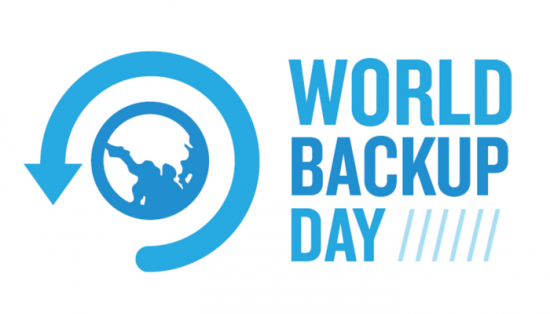 World Backup Day is celebrated on March 31 to raise awareness about backups and data preservation. What started off as a humorous homage to April Fool’s Day has now become a day to remind individuals to back up their most treasured files. While it’s easy to advocate the need to perform regular data backups for individuals, the task may be a bit more complicated for website owners and businesses. Below are five tips and reminders for small businesses:
World Backup Day is celebrated on March 31 to raise awareness about backups and data preservation. What started off as a humorous homage to April Fool’s Day has now become a day to remind individuals to back up their most treasured files. While it’s easy to advocate the need to perform regular data backups for individuals, the task may be a bit more complicated for website owners and businesses. Below are five tips and reminders for small businesses:
1. Back Up Three Ways
Any business that collects data must properly manage and protect it. Many security experts recommend backing up data three ways: internally, externally, and remotely. Backing up internally means that data backups are contained within the organization’s own servers, while backing up externally means external or removable hard drives are used to back up data. Finally, backing up remotely refers to cloud storage, a growing and popular alternative. Each has its limitations and perks to boast, but small businesses should keep note that solely relying on one method of backup is a recipe for disaster.
2. Consider Investing In Deduplication
What does deduplication mean in relation to data backups? Backing up your data always involves some kind of storage component. Data deduplication is an important technology that allows for the elimination of redundant data. This is a must for those small businesses who are collecting massive amounts of valuable data and are need of a cost-effective solution. Let’s say you want to back up important business emails, but 500 of those emails contain the same large file attachment. Rather than backing up all 500 versions of the same file and wasting space on storage, only one file is actually stored and backed up with data deduplication.
3. Protect Your Data With Encryption
Whenever and wherever you have data stored (including your backups), it should be protected. One way to do this is through encryption. This ensures that even if a hacker breaks into your computer systems and is able to locate your most valuable information, the data will be of no use without the proper key to decrypt said data. Keep your databases secure with private key encryption so that your organization is in control of key management, minimizing the risk of private keys falling into the wrong hands.
4. Know That Not All Data Can Be Backed Up The Same Way
Not all types of data can be stored or protected the same way. The same goes for backing up your data. In some instances, certain file types may be excluded from your backup, especially when it’s done online. System, temporary, exchange, and virtual machine files are just some of those kind of files that may be excluded. For this reason, backing up certain kinds of data requires careful planning on the side of your IT management team. Make sure you do your homework and research backup solutions that cater to your organization’s needs.
5. Expect Data Recovery To Take Some Time
No matter how resilient and well-protected you assume your servers to be, they can crash unexpectedly. It is times like these that you’ll need to ready yourself with data recovery options. Data recovery depends on a number of factors, so it is difficult to gauge the recovery period and whether you can recover the data in full. Depending on the data recovery service, you may be able to retrieve your data in as little as one to two days. In some cases, however, the entire process from diagnosis to delivery may take weeks. To best prepare yourself for minimal data loss, it’s important to back up your data regularly.
Data backups are not often prioritized and put in the back burner, which is why World Backup Day serves as a great reminder for the smaller businesses who may not be implementing the best practices in backing up. For more tips visit the official World Backup Day website and gain access to their resources. We also recommend taking the World Backup Day pledge by signing in to your social media accounts and pledging on Facebook or Twitter!





